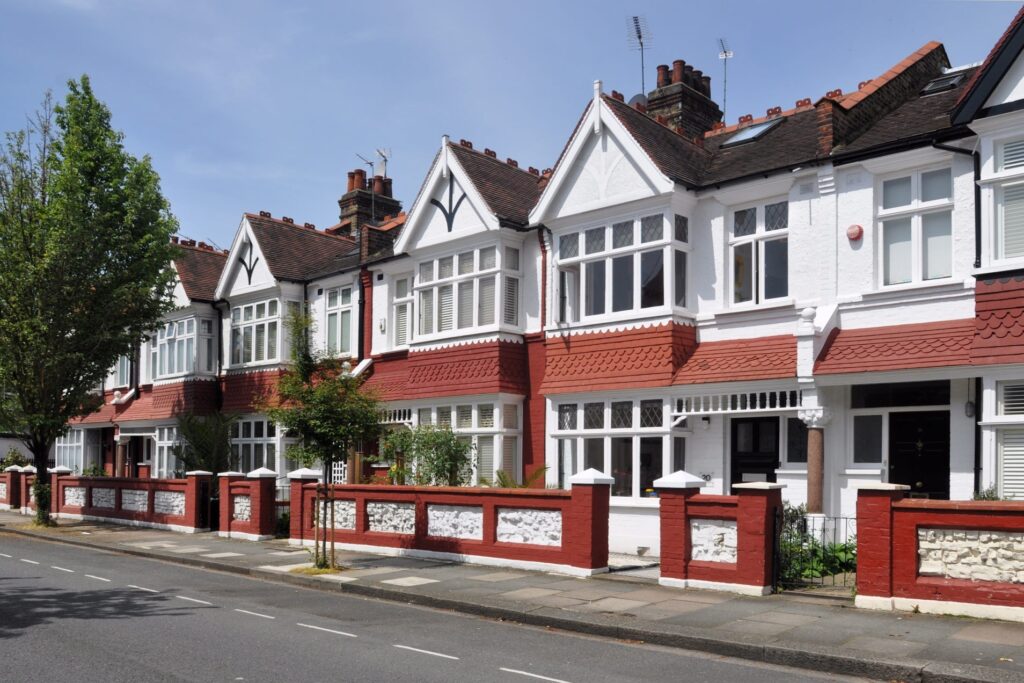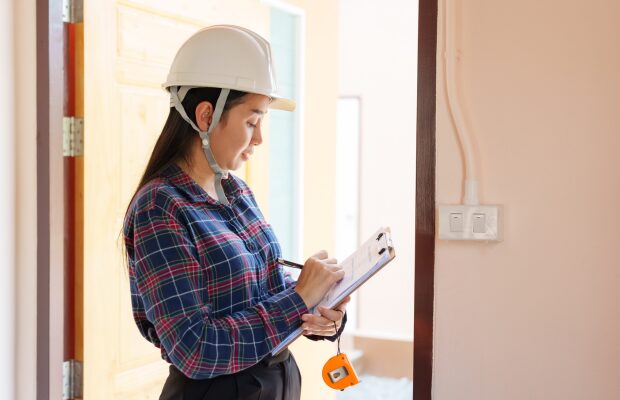Is there a more daunting task in property than buying a home in London?
After all, you’re faced with one of the most competitive UK property markets and prices that are higher than anywhere else in the UK.
Indeed, London property prices are among the highest anywhere in the world.
You’re also faced with the prospect of searching through thousands of homes across a huge city.
Despite all that, though, buying in London really is a fantastic opportunity and living in the city is an experience out on its own.
However, any property search in London requires intensive research and sound preparation if you really want to find your dream home.
In this guide, we’ll look at how you should establish and manage your finances, detail some of the best places in the capital to look for a property and take you through the buying process itself…
How to buy a house in London
Ready to buy in the capital? Here’s what you’ll need to consider…
1. Get your finances in order
One thing you will need to buy a house in London is money. And probably quite a lot of it.
Earlier this year, London was named the most expensive city in Europe to buy a home and the eighth most expensive in the world.
But if you look in the right areas for you and, most importantly, get your finances in order before you buy, the capital’s stunning properties need not be out of reach.
As with any property purchase, it pays to clear any debts before you buy. Mortgage companies hate debt and having some will undoubtedly impact on your borrowing ability.
And seeing as every single pound counts in the London market, you’ll want to make sure you can borrow as much as possible without over-stretching yourself.
2. Factor in your deposit
Clearly the more you can save, the better.
You’ll get a better mortgage interest rate with a larger deposit and that will save you money in the long term.
But saving for a deposit, especially if you’re already living in London, is not easy.
Deposits for first-time buyers in London averaged £32,685 in 2021, according to research by Halifax, meaning a huge amount of savings pressure for anyone wanting to buy in the capital.
3. Think about location
London is a big place. Really big, actually.
So, pinpointing the area(s) you want to live in is key to a successful property search.
There’s no room for a scattergun approach in the capital, so it’s best to think of boroughs and postcodes as little towns within a big city.
Find two or three that suit you best, both in terms of affordability and suitability for things like commuting or schools, and focus your search on them.
Here are five London postcodes for you to start checking out!
Beware though. London property prices can be hugely different simply by street.
For example, living in SW7 is far more expensive than living in W8 – despite the two West London postcodes being right next door to each other.
4. Are you going old or new?
The great thing about London is its variety.
We’ve got everything here from stunning riverside new-build flats to traditional Georgian, Victorian and Edwardian houses.
But all that choice can mean some tough decisions. And you’ll need to decide what kind of property you want and what kind of property will work best for you.
Once you’ve decided on your core search area, establish what kind of property you are after and focus in on those properties.
That level of focus will help you avoid being tempted and wasting time on properties that are not right for you.
5. Stay ahead of the competition
Competition in the London property market is high.
So, if you want to ensure you’re in the best position to find your dream home, you need to be constantly researching properties and keeping an eye on the market.
Buying in London is an investment and commitment in time, so as well as being all over the main property portals, Rightmove, Zoopla and OnTheMarket, you should strike up good relationships with agents in the areas you’re searching.
Doing so could see you get an early tip on a property coming to market, meaning you can get in for a viewing before every other buyer in London.
It’s little advantages like that that can make a real difference to your search.
6. Prepare to be flexible
As a big city, London rarely sleeps.
And it could be the same for you once you embark on a capital property hunt.
We’re exaggerating slightly, of course.
But you should always aim to be flexible – whether that means an early morning viewing or spending your Sunday afternoons browsing the property portals and researching pricing in a certain area.
Be prepared to do whatever is necessary and you’ll soon be on your way towards your dream London property.
7. Be prepared to commute
The closer you live to Central London, the more expensive properties become.
So, if your budget doesn’t stretch to travel zones one or two, consider living further out and commuting in.
While the commute may cost more annually, it will almost certainly pale into insignificance compared with the asking prices of central properties.
You want your London home to be right for you – as well as be at the right price.
So, don’t rush into anything when on your property search.
Take a long-term view and if, after searching for some time, you still haven’t found your dream home, consider renting and use the time to explore other areas – as well as top up that deposit if possible.
Where to buy a house in London
London is full of great communities, neighbourhoods, and properties.
But where do you start your property search?
1. North London
North London includes the N, EN, HA and NW postcode areas, extending from Clerkenwell and Finsbury up to Greater London’s border with Hertfordshire and the M25.
Great areas to consider and what you’ll pay
1. Bounds Green
Average property price: £489,588
20% deposit: £97,917
10% deposit: £48,958
5% deposit: £24,479
Search for properties in Bounds Green
2. Enfield
Average property price: £433,724
20% deposit: £86,744
10% deposit: £43,372
5% deposit: £21,686
Search for properties in Enfield
3. Finchley
Average property price: £608,156
20% deposit: £121,631
10% deposit: £60,815
5% deposit: £30,407
Search for properties in Finchley
4. Golders Green
Average property price: £856,457
20% deposit: £171,291
10% deposit: £85,645
5% deposit: £42,822
Search for properties in Golders Green
5. Harrow and Kenton
Average property price: £456,208
20% deposit: £91,241
10% deposit: £45,620
5% deposit: £22,810
Search for properties in Harrow and Kenton
6. Islington
Average property price: £859,225
20% deposit: £171,845
10% deposit: £85,922
5% deposit: £42,961
Search for properties in Islington
7. Mill Hill
Average property price: £640,214
20% deposit: £128,042
10% deposit: £64,021
5% deposit: £32,010
Search for properties in Mill Hill
8. Stanmore
Average property price: £558,147
20% deposit: £111,629
10% deposit: £55,814
5% deposit: £27,907
Search for properties in Stanmore
9. Tottenham
Average property price: £410,199
20% deposit: £82,039
10% deposit: £41,019
5% deposit: £20,509
Search for properties in Tottenham
10. Wembley
Average property price: £459,394
20% deposit: £91,878
10% deposit: £45,939
5% deposit: £22,969
Search for properties in Wembley
11. Willesden Green
Average property price: £823,259
20% deposit: £164,651
10% deposit: £82,325
5% deposit: £41,162
Search for properties in Willesden Green
2. West London
West London includes the W, SW and UB postcode areas, extending from Westminster in Central London to Hayes and Uxbridge near the western part of the M25.
Great areas to consider and what you’ll pay
1. Greenford
Average property price: £437,018
20% deposit: £87,403
10% deposit: £43,701
5% deposit: £21,850
Search for properties in Greenford
3. East London
East London includes the E and RM postcode areas, extending from Mile End to the east of Central London to Romford and Upminster near the eastern part of the M25.
Great areas to consider and what you’ll pay
1. Bethnal Green
Average property price: £524,812
20% deposit: £104,962
10% deposit: £52,481
5% deposit: £26,240
Search for properties in Bethnal Green
Buying a house in London – the process
It pays to be organised and structured when buying a property in London.
So, here’s a checklist of each phase of the buying process…
Establish finances, deposit and borrowing potential
Draw up budget including legal fees, lender fees, removals, stamp duty and solicitor fees and obtain a mortgage agreement in principle
Pinpoint three key areas of London to start your search, taking into account travel needs and budget
Establish the type of property you want / need against your budget
Start searching for properties, contact estate agents, subscribe to property alerts on the portals and head out on viewings
Make an offer on your chosen home, establish what’s included in the sale and engage a solicitor
Complete your mortgage application
Arrange lender valuation of property
Draft contracts and conveyancing process
Mortgage offered by lender
Sign contracts and agree a moving-in date
Completion – you’ve got the keys and your new home!








